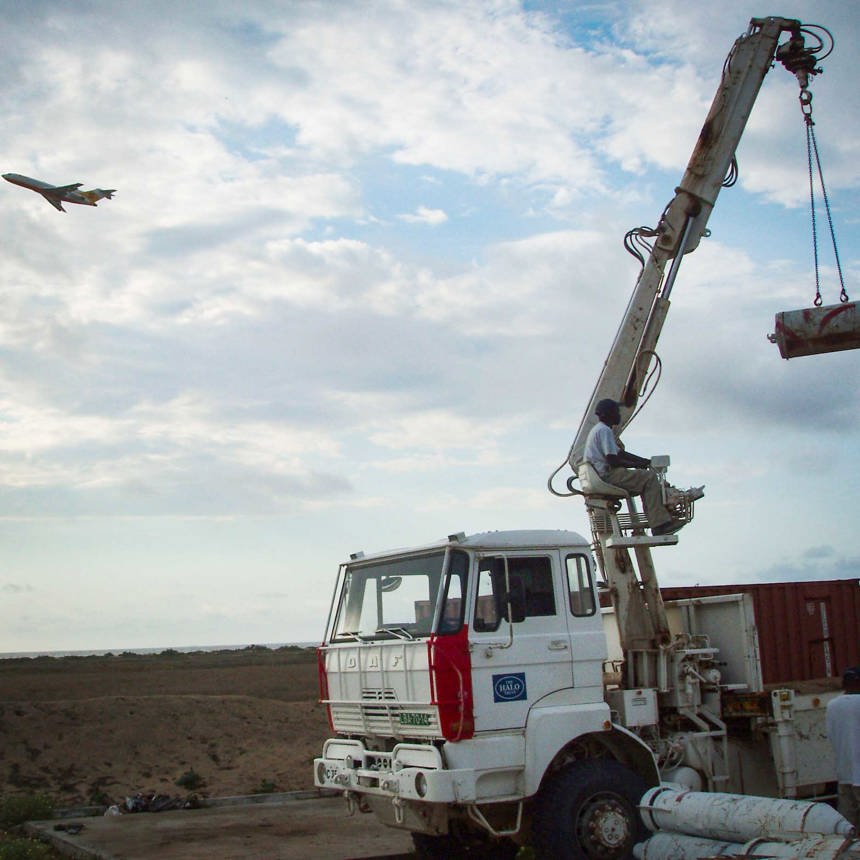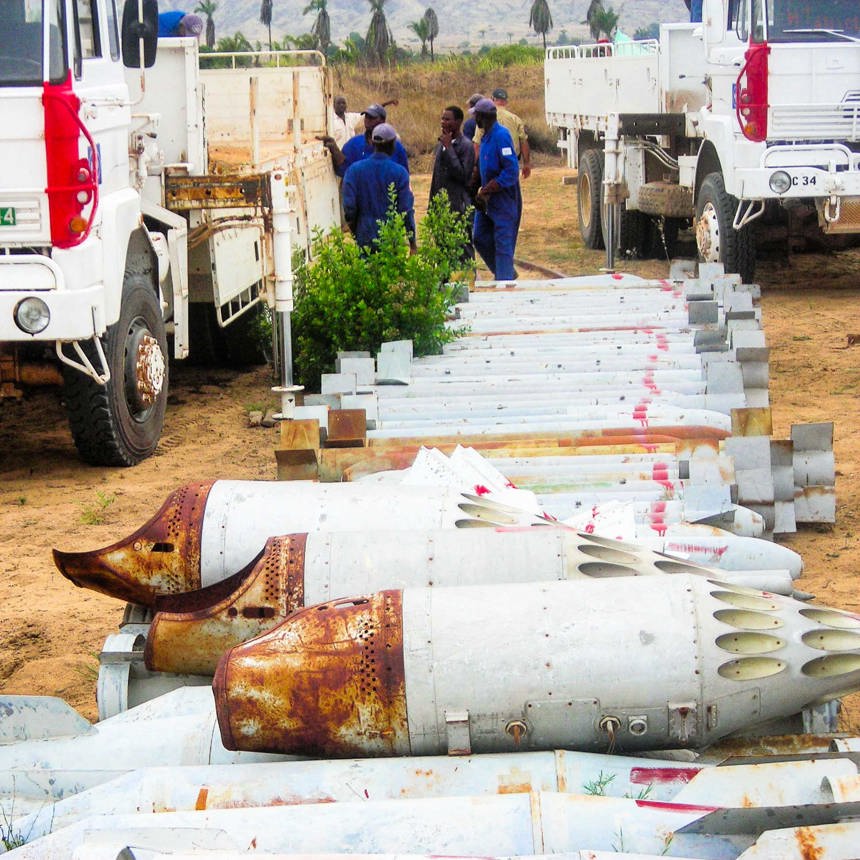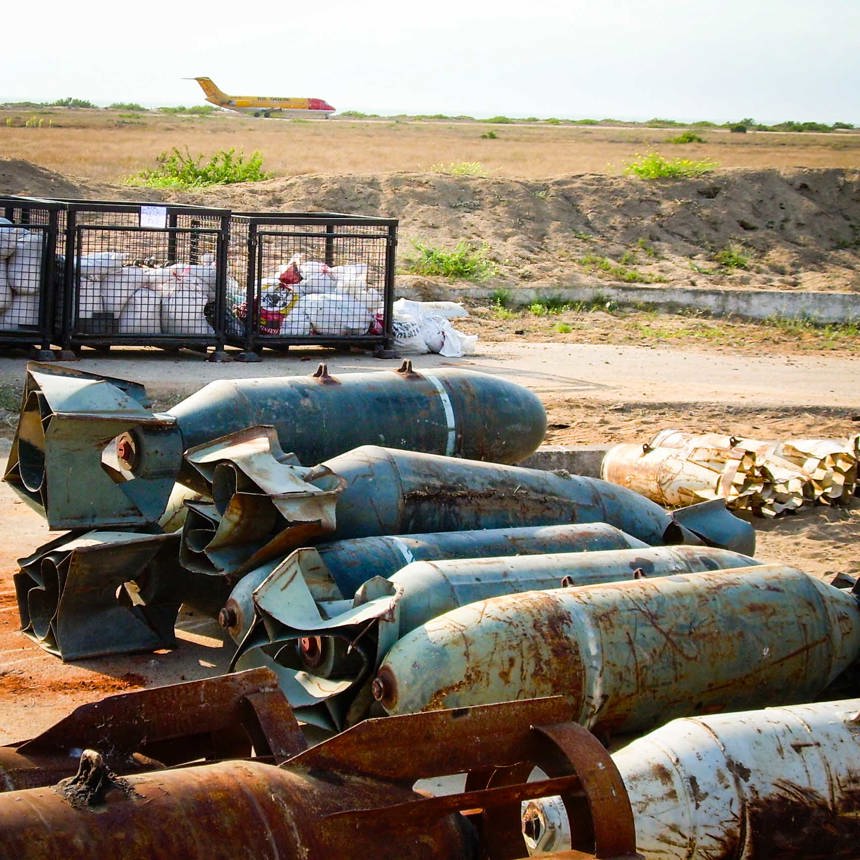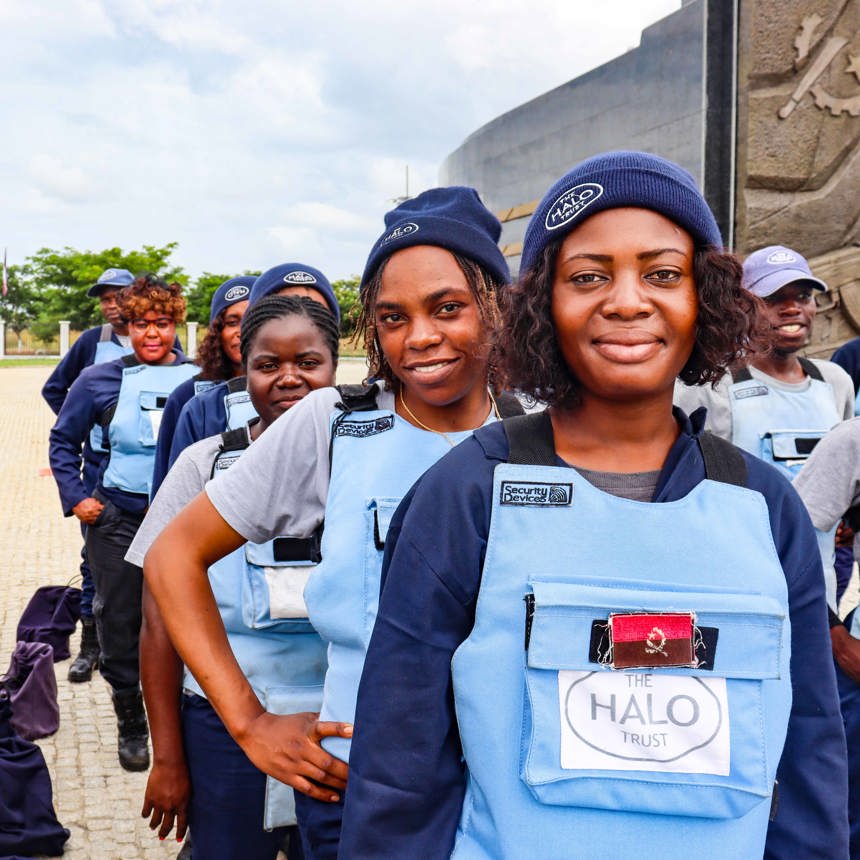The first visit of an American President to Angola has sparked commentary about how the relationship between two former Cold War rivals has evolved.
For The HALO Trust, the moment is not about one administration: it’s a sign of the rewards reaped from three decades of US engagement, partnership and investment in humanitarian landmine clearance in Angola.
Symbolic of this long-standing US support is the fact that Air Force One took off from Catumbela Airport in Benguela Province. This was only possible because in 2007-08, a US-funded team of HALO weapons and ammunition specialists cleared 50 tons of dangerous aircraft bombs, missiles and rockets from the airport and its surroundings.
Clearing bombs from Catumbela Airport



Although 40 years of conflict in Angola came to an end in 2002, the vast country was left scarred with countless landmines and other explosives. These landmines have not only killed tens of thousands of people, but they have also frightened away investors and ecotourists, and hindered effective environmental protection and conservation efforts at the headwaters of the Okavango Delta.
Since 1994, US funding for HALO’s work in Angola has contributed to the destruction of more than 115,000 landmines in 1,000-plus minefields. In total, nearly 6,500 acres of safe land – eight times the size of NYC’s Central Park – have been directly returned for productive use to the people of Angola by US funding. More than half of that area has provided Angolan farmers with safe farmland and access to natural resources.

America’s commitment to HALO Angola allowed us to retain staff and save lives even when international attention was focused elsewhere. Thanks to US funding, HALO Angola stayed open in 2015-16, when funding cuts brought it down to just over 200 employees. Currently, HALO Angola has more than 1,600 demining staff, including over 700 women – who are now equipped with the skills and financial resources to be leaders in their communities.

Angolan headwaters of the Okavango
During the first Trump administration, in 2018, the US Government passed the Defending Economic Livelihoods and Threatened Animals (DELTA) Act, so that America could better partner with the governments of Angola, Botswana, Namibia, Zambia, and Zimbabwe to collaboratively improve natural resource management and prevent poaching across the Okavango Delta region – which has its headwaters in Angola. The US Government also invested significantly in landmine clearance.
Thanks to America’s growing partnership with Angola, in 2019 the Government of Angola was able to earmark $60 million for HALO to clear mines from two national parks in Cuando Cubango Province. The Government of Angola’s investment was planned to enable sustainable developed for conservation-based tourism in the national parks and to diversify Angola’s economic development.

HALO also has a role to play in clearing landmines from the communities and land that runs alongside the strategic Lobito Railway line – an infrastructure zone that binds US and international investment to African resources. Removing the landmines will help support President João Lourenço’s development plans for his country and his legacy, while providing an alternative to investment from China and other countries.
In his State of the Nation address this October, President Lourenço announced Angola would continue to prioritise landmine clearance in its national development plans. More than 1,000 minefields still need to be cleared. HALO stands at the ready to support the Government of Angola and the US Government to get the job done – working in partnership with private sector investors who are eager to support the country’s economic growth and diversification.


